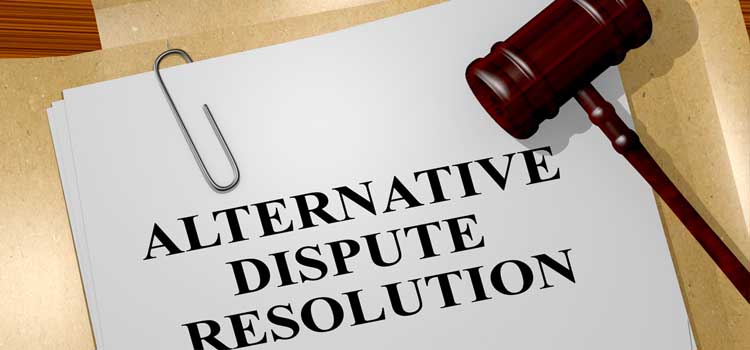
Alternative Dispute Resolution or ADR as it is commonly known are the different ways people can resolve disputes without a trial. The most common Alternative Dispute Resolution processes include mediation, arbitration and neutral evaluation. They may mostly involve the two parties engaged in dispute and their individual solicitors. These processes are generally confidential, less formal and less stressful than traditional court proceedings. The three most common Alternative Dispute Resolution processes are explained below;
Arbitration: In arbitration a neutral person called arbitrator hears arguments and evidence from each side and the decides the outcome. Arbitration is less formal than a trial and the rules of evidence are often relaxed. In binding arbitration, parties agree to accept the arbitration decision as final and there is generally no right to appeal. In non-binding arbitration, the parties may request a trial if they do not accept the arbitrator’s decision.
Mediation: A neutral person called the mediator helps the parties try to reach a mutually acceptable resolution of the dispute. The mediator does not decide the case but helps the parties communicate so they can try to settle the disputes themselves. Mediation may be particularly useful when family members, neighbors or business partners have a dispute. Mediation may be inappropriate if a party has a significant advantage in power or control over the other.
Neutral Evaluation: A neutral person with subject matter expertise heard abbreviated arguments, reviews the strengths and weaknesses of each sides case and offers an evaluation of likely court outcomes in an effort to promote settlement. The neutral evaluation may also provide case planning guidance and settlement assistance with the party’s consent.
Conflict is inevitable, but Combat is optional
ADR is often quicker, less expensive, and less adversarial than litigation. It allows parties to have more control over the resolution process and can result in more creative solutions.
Arbitration is a process in which a neutral arbitrator, often with legal expertise, renders a binding decision after hearing both parties' arguments and evidence. Unlike mediation, arbitration results in a binding decision.
The binding nature of ADR depends on the specific method and the agreement of the parties involved. Arbitration can be binding or non-binding, while mediation typically results in a non-binding agreement unless parties agree otherwise.
The ability to appeal an ADR outcome depends on the method and the agreement of the parties. Arbitration decisions may have limited grounds for appeal, whilst mediated agreements are typically not subject to appeal.
Chat with Us